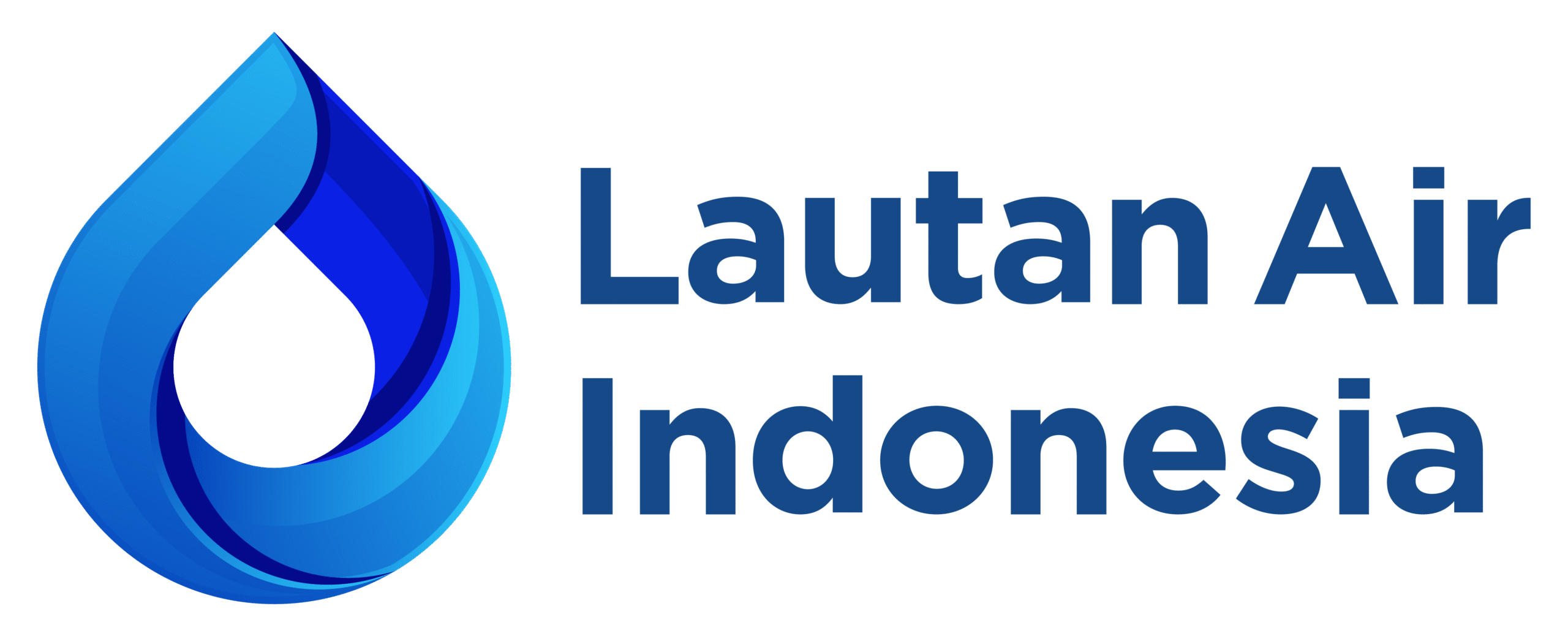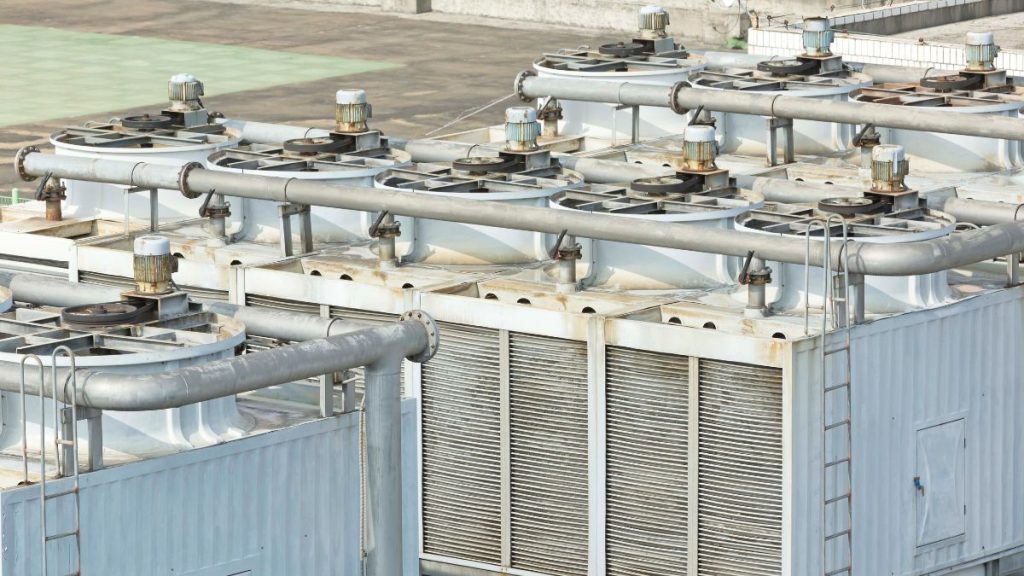In industrial water treatment, pH in cooling tower plays a vital role in ensuring the efficiency, safety, and longevity of the system. Cooling towers are essential components in power plants, manufacturing facilities, petrochemical plants, and many other industries that require heat removal to maintain operational stability.
However, improper management of pH can lead to serious issues such as corrosion, scaling, and microbial growth problems that not only reduce performance but also increase operational costs and downtime.
Why is the pH Level of Cooling Tower Important?
The water circulating in a cooling tower is in constant contact with air, heat, and various dissolved minerals. These interactions significantly impact water chemistry, especially its pH. Maintaining the correct pH range is crucial because it directly influences three main factors: corrosion, scaling, and biological growth.
1. Corrosion Control
If the pH in cooling tower water is too low (acidic), it creates a corrosive environment. Acidic water aggressively attacks metal surfaces, leading to the deterioration of equipment such as pipes, heat exchangers, and tower structures. Corrosion not only weakens the integrity of the system but also increases the risk of leaks and costly repairs.
On the other hand, excessively high pH (alkaline conditions) can still promote certain forms of corrosion, especially when oxygen levels are high. This means both extremes—too low or too high—are undesirable, making balanced pH management essential.
Read Also: Corrosion Inhibitor: Maximum Protection for Your Cooling System
2. Scale Formation
When the pH level becomes too high, calcium carbonate and other mineral salts in the water tend to precipitate out, forming hard deposits known as scale. Scale buildup reduces heat transfer efficiency, forcing the system to consume more energy to achieve the same cooling effect. Left unchecked, scaling can block water passages, damage equipment, and increase maintenance costs.
3. Microbial Growth
An imbalanced pH environment can also encourage microbial growth, including bacteria, algae, and fungi. These microorganisms can create biofilms, which not only block heat transfer surfaces but also protect corrosion-causing bacteria, worsening system damage. Moreover, uncontrolled microbial activity can pose serious health risks, such as Legionella outbreaks.
In short, maintaining proper pH in cooling tower systems is a balancing act that protects equipment, reduces energy costs, ensures worker safety, and extends the lifespan of the facility.
How to Control the pH Level in Cooling Towers
Achieving the right balance of pH in cooling tower systems requires both chemical and operational strategies. The following are proven methods that industries use to keep their systems running efficiently:
1. Regular Monitoring and Testing
Continuous or frequent monitoring of pH is the first step in controlling it effectively. Advanced sensors and pH controllers can provide real-time data, allowing operators to respond quickly to fluctuations. Without monitoring, even small deviations can escalate into major problems.
2. Chemical Treatment Programs
Chemical conditioning is one of the most reliable ways to control pH. This usually involves adding acids or alkaline substances to balance the water chemistry.
- Acid Addition: When pH is too high, acids such as sulfuric acid or hydrochloric acid are commonly dosed to bring it back within the desired range.
- Alkalinity Adjustment: When pH is too low, alkaline agents like caustic soda (sodium hydroxide) may be added.
These treatments must be carefully controlled, as overdosing can cause new issues. This is why professional chemical programs, tailored to site-specific water conditions, are crucial.
3. Use of Corrosion and Scale Inhibitors
In addition to adjusting pH, many treatment programs incorporate corrosion and scale inhibitors. These chemicals form protective layers on equipment surfaces or stabilize minerals in water to prevent precipitation, reducing the risk of corrosion or scale regardless of minor pH fluctuations.
Read Also: Scale Inhibitor: Effective Scale Prevention in Water Treatment
4. Blowdown Control
Cooling towers operate on a principle of water evaporation, which leaves dissolved minerals behind. Over time, these minerals concentrate and increase pH. Blowdown—the controlled discharge of a portion of circulating water—helps dilute mineral concentrations and keep pH within acceptable limits. Automated blowdown controllers can be linked with pH sensors for maximum efficiency.
5. Biological Control Measures
Biocides are often used alongside pH control strategies to suppress microbial growth. Some microorganisms thrive at specific pH levels, so by maintaining the correct pH, operators can make the system less favorable for biological contamination. However, when biocides are needed, their effectiveness also depends on stable pH management.
6. Integration of Automated Control Systems
Modern facilities often integrate advanced controllers that automatically regulate pH in cooling towers. These systems can dose chemicals precisely based on sensor feedback, ensuring consistent treatment without human error. Automation not only improves efficiency but also reduces operational costs over time.
Your Trusted Partner in Cooling Tower Water Treatment
Managing pH in cooling tower systems can be challenging, but you don’t have to face it alone. With more than 40 years of experience in water treatment, Lautan Air Indonesia provides comprehensive solutions to ensure your cooling towers run efficiently, safely, and cost-effectively.
Our services include:
- Customized Water Treatment Programs tailored to your site-specific water conditions.
- Advanced Monitoring & Automation Solutions to keep pH levels within the optimal range.
- Supply of High-Quality Water Treatment Chemicals including acids, alkalis, corrosion inhibitors, scale inhibitors, and biocides.
- Operation and Maintenance Services to ensure your system always performs at its best.
- Technical Expertise and Consultation from our team of specialists who understand the unique challenges of industrial cooling systems.
- Comprehensive Laboratory Support for water analysis, system monitoring, and troubleshooting.
At Lautan Air Indonesia, we don’t just supply chemicals; we provide a full suite of solutions that optimize your cooling towers, extend equipment life, and lower operating costs.
Contact us today to discover how we can help you manage your cooling tower pH levels effectively and ensure long-term operational success.



